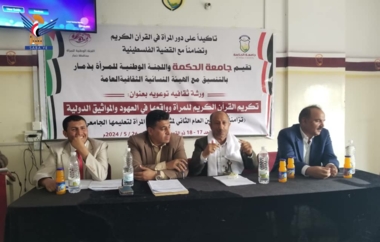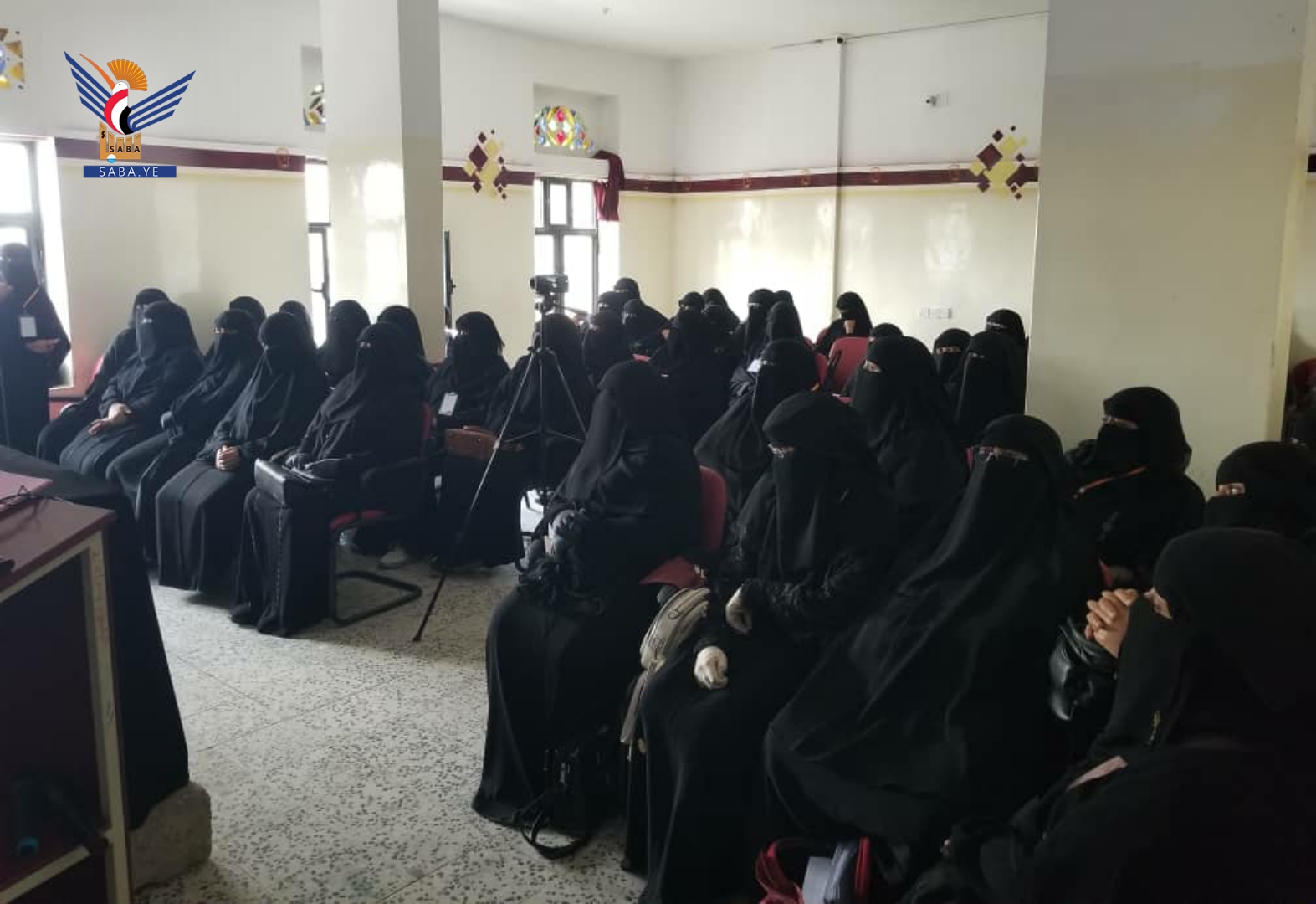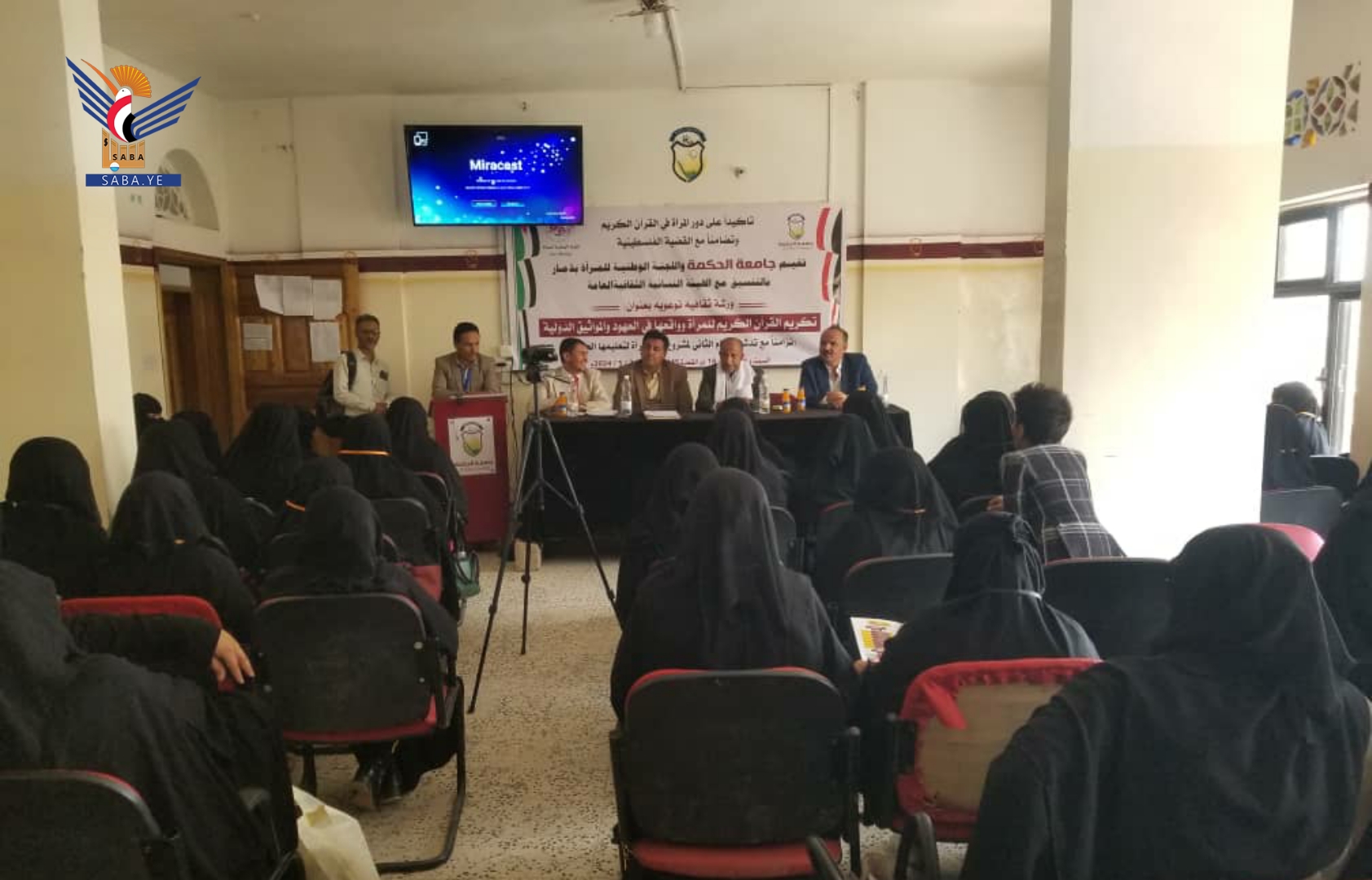
DHAMAR May. 27. 2024 (Saba) - A awareness workshop on the status and reality of women in the Quran, Islamic Sharia, international covenants, and charters has concluded in Dhamar province, organized by al-Hikmah University and the branch of the National Women's Committee.
The workshop, which held over two days in coordination with the Public Cultural Women's Authority in Dhamar, discussed working papers addressing the reality of women and their role in society.
During the workshop, Chief Judge of the Appeals Court in the province, Ibrahim al-Dhurafi reviewed the status of women in Islam and their role in building society.
Al-Dhurafi considered the enemies' talk about women's rights as a lie, and their religious philosophy views women negatively, considering them mere commodities for exploitation.
Meanwhile, member of the Yemeni Scholars Association Sheikh Ismail al-Washli pointed out that the Quran and Islamic culture presented great examples of women such as Fatima al-Zahraa, Khadijah al-Kubra, Maryam, and Zainab, peace be upon them, and that the Islamic nation does not need the models presented by the West.
For his part, Chairman of the Primary Criminal Court in the province, Judge Yasser al-Amoudi affirmed the honoring of women in the Quran.
Al-Amoudi outlined the Islamic methodology in caring for them, the danger of Western terms related to women's rights on women and society, and the importance of correcting false Western concepts about women's rights.
On the other hand, Director of the Appeals Court in the province Judge Khalid al-Soswa highlighted the American and Zionist role aimed at corrupting society starting from targeting women culturally, doctrinally, and emotionally.
Meanwhile, Professor of Public Law at Al-Hikmah University Dr. Abdulalem al-Faqih discussed the status and reality of women in international covenants.
On his part, Professor of International Law at al-Hikmah University Dr. Abdullah Moqbil addressed women's rights in the Yemeni constitution and laws.
The workshop concluded with a number of recommendations calling for intensifying awareness programs for women, schoolgirls, institutes, and universities to enhance their religious identity and immunize them against the risks of soft war.
H.H
The workshop, which held over two days in coordination with the Public Cultural Women's Authority in Dhamar, discussed working papers addressing the reality of women and their role in society.
During the workshop, Chief Judge of the Appeals Court in the province, Ibrahim al-Dhurafi reviewed the status of women in Islam and their role in building society.
Al-Dhurafi considered the enemies' talk about women's rights as a lie, and their religious philosophy views women negatively, considering them mere commodities for exploitation.
Meanwhile, member of the Yemeni Scholars Association Sheikh Ismail al-Washli pointed out that the Quran and Islamic culture presented great examples of women such as Fatima al-Zahraa, Khadijah al-Kubra, Maryam, and Zainab, peace be upon them, and that the Islamic nation does not need the models presented by the West.
For his part, Chairman of the Primary Criminal Court in the province, Judge Yasser al-Amoudi affirmed the honoring of women in the Quran.
Al-Amoudi outlined the Islamic methodology in caring for them, the danger of Western terms related to women's rights on women and society, and the importance of correcting false Western concepts about women's rights.
On the other hand, Director of the Appeals Court in the province Judge Khalid al-Soswa highlighted the American and Zionist role aimed at corrupting society starting from targeting women culturally, doctrinally, and emotionally.
Meanwhile, Professor of Public Law at Al-Hikmah University Dr. Abdulalem al-Faqih discussed the status and reality of women in international covenants.
On his part, Professor of International Law at al-Hikmah University Dr. Abdullah Moqbil addressed women's rights in the Yemeni constitution and laws.
The workshop concluded with a number of recommendations calling for intensifying awareness programs for women, schoolgirls, institutes, and universities to enhance their religious identity and immunize them against the risks of soft war.
H.H
resource : Saba

